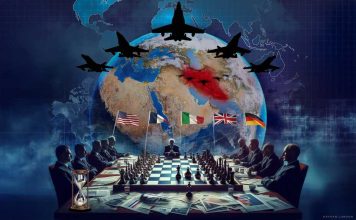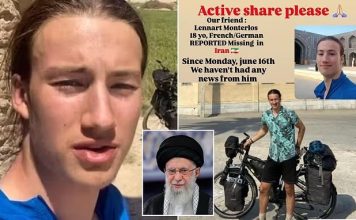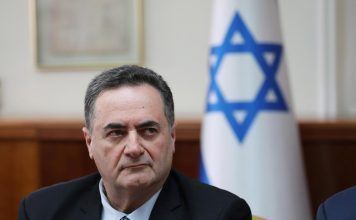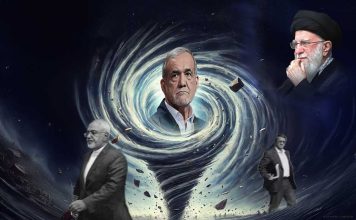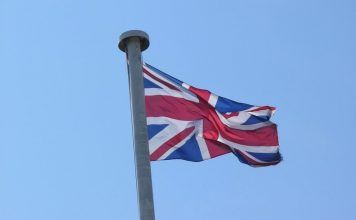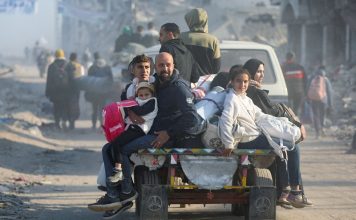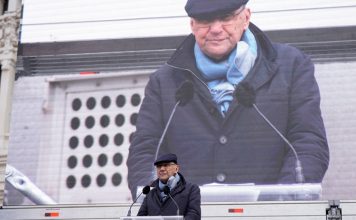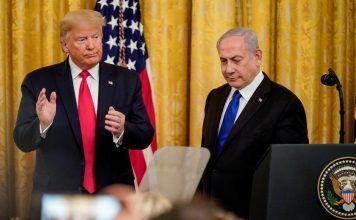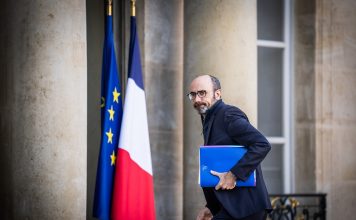An evidence session in the British Parliament about Iran and the recent protests in the country was cancelled following threats made to a witness, according to the lawmaker and Foreign Affairs Select Committee Chair Alicia Kearns.
Kearns said the rest of the meeting would be held in private to “avoid heightening the security risk.”
The Nov. 6 public session was set up to discuss the committee’s 2020 report on Iran, Iran’s nuclear program, the protests in Iran; and the foreign policy implications of the unfolding developments in the Islamic Republic.
The session hosted was cut short after just eight minutes. Speaking on Parliament’s live television channel, Kearns told viewers the meeting would not go ahead as planned after the committee had received a flood of emails which amounted to “witness intimidation.”
“We will not tolerate any concerted attempt by state or non state actors to undermine, discredit or cancel a witness we invited to give evidence,” Kearns said. “The intimidation of any of our witnesses is utterly unacceptable.”
Responding to a request by Kayhan Life for more details about the incident, a spokesperson for the committee said it would “not provide any comments beyond the statement made” on Parliament TV on Nov. 6.
The Iranian government has been accused by human rights organizations of targeting dissidents, children and ethnic and religious minorities in recent months, as anti-government protests spread to every province in Iran.
The uprising in Iran began on Sept. 16 after the death of 22-year-old Kurdish-Iranian Jina Mahsa Amini while she was in the custody of the country’s morality police. Now in their twelfth week, the protests have turned into a countrywide call for regime change.
More than 400 Iranians have been killed so far by the Iranian security forces, including at least 64 children, according to the US-based Iran Human Rights Documentation Center. An estimated 14,000 have been arrested, including at least 574 university students according to the New York-based Center for Human Rights in Iran (CHRI).
Iran’s government has begun to sentence people to death and execute them for taking part in the protests.
A growing number of children are also reported to be facing the death penalty, including brothers Ali and Mohammad Rakhshani, aged 15 and 16 respectively, from Iran’s Baluchistan province. The Baluchis are an ethnic minority group in Iran routinely persecuted by the government.
The teenagers were arrested on the charge of “corruption on earth” and detained in Zahedan prison, where they remain at risk of execution, according to a Dec. 1 tweet by US-based the Alliance for Rights of All Minorities.
At least three more children are believed to be at risk of being executed, after being arrested in Iran’s Karaj City on charges which carry the death penalty.
“The juveniles are being tried in the context of an ongoing government-led fear campaign aimed at preventing people from joining the anti-state protests,” CHRI Executive Director Hadi Ghaemi said in a Nov. 30 statement.
The brutal crackdown on protesters has disproportionately affected Kurds, a minority group in Iran.
Kurdish rapper Saman Yasin, Mohammad Baroghani and Mohsen Shekari were arrested and reportedly moved to solitary confinement on Dec. 6 in Karaj’s Rajai-Shahr (Gohardasht) prison, according to a tweet by @mamlekate, an influential account which shares news from inside Iran. The tweeter said a source from the prison warned that the men were all at imminent risk of execution.
Amnesty International said Shekari was executed on Dec. 8, following what it called “a grossly unfair sham trial. His execution exposes the inhumanity of Iran’s so-called justice system.”
.@amnesty is horrified at today’s execution of protester Mohsen Shekari by Iranian authorities less than 3 weeks after sentencing him in a grossly unfair sham trial. His execution exposes the inhumanity of Iran's so-called justice system as dozens of others face the same fate. pic.twitter.com/xwZ7lcc8oK
— Amnesty Iran (@AmnestyIran) December 8, 2022
A 21-year-old man named #Houman_Abdollahi, who was injured yesterday during the public protests in #Sanandaj, passed away hours later due to the severity of his injuries.#Mahsa_Amini #MahsaAmini #مهسا_امینی #اعتصابات_سراسری #زن_زندگی_آزادی https://t.co/ypkEJnPb7N
— Kurdistan Human Rights Network (KHRN) (@KurdistanHRN_En) December 8, 2022
Concerns about the regime’s targeting of Kurds in Iran were raised at a Dec. 7 emergency meeting in the British House of Commons by the Centre for Kurdish Progress. The session was held to discuss attacks on Kurds by the Iranian and Turkish governments.
Chairing the meeting, lawmaker Lloyd Russel-Moyle said, “The Iranian-Kurdish women have led the fight against the [Iranian] regime. We see now [anti-government] campaigns across Iran, but [Iran’s government] is now itself starting to bomb [Kurdish] party headquarters in Iran as well.”
Emergency meeting opened by @lloyd_rm #Iran pic.twitter.com/r5hSZbpjTj
— Natasha Phillips ناتاشا فیلیپس (@SobukiRa) December 7, 2022
Opening the meeting, the UK’s Shadow Foreign Office Minister for the Middle East and North Africa, Bambos Charalambous said, “We want to make sure we can give [Kurdish people] whatever support we can, and we condemn the attacks.”
“We nee to make sure there are no attacks on people’s cultural, their ethnic backgrounds, and that the rights and the culture of the Kurdish people are respected,” Charalambous added.
Dr. Azad Deewanee, a panelist at the meeting and a researcher specializing in Middle Eastern conflict, spoke about the collaboration between Iran, Russia and Turkey to crack down on Kurds in the region.

